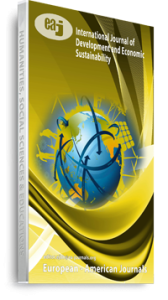This study broadly examined the relationship between monetary policy and output growth in selected oil producing countries in Africa, using time series data spanning from 1980 to 2016. Specifically, the study analyzed the long-run relationship between macroeconomic variables and output growth in selected oil producing countries in Africa. The study confirmed thestationarity of the time series properties of all the variables in the study, using ImPersaran and Shin (IPS) panel unit root test. The study employed Westerlund Error Correction Based Panel Co-integration test to unify the short run and the long run dynamics. Findings from the study showed that there is a long term co-movement between output growth and macroeconomic variables in the selected oil producing African countries. The results from the long – run model of the fixed effect Regression further corroborate the report from the Westerlund Panel Co-integration test where all macroeconomic variables (RINTR, EXR, WOP and USRINTR) have significant long term impact on output growth. Although, the short – term impacts of these macroeconomic variables on output growth are also significant as shown by the short – run model of the fixed effect regression. Based on the findings of this study, it was therefore suggested that the regulatory and supervisory framework for the financial sector should be strengthened in order to improve the effectiveness of monetary policies of the government.
Keywords: Error Correction Model, Monetary Policy, oil producing countries, output growth, panel co-integration analysis

